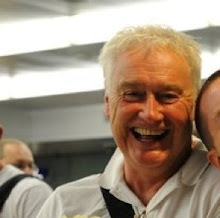Written for londonist.com

Have you heard the one about the Irishman who walks into a bar and says he’s killed his father with a potato spade? The landlord gives him a job and immediately leaves him alone with his daughter whilst he goes to a wake… It sounds like the set-up to a shaggy-dog joke rather than the essence of a plot by one of Ireland’s most famous dramatists.
Some London revivals have “important” written all over them. You can tell by the dressy South Bank-ish audience, and by the way broadsheet critics fall over each other to show their Google-enhanced erudition. The Telegraph’s Charlie Spencer called it a “tragicomic marvel”, Paul Taylor in the Indie cited its “dangerous iconoclasm” and Michael Coveney compared it to Gogol. They all refer to the riots in 1907 after J M Synge’s depiction of the Irish as bog-trotters too easily bedazzled by storytelling and superstition, and harp on the play’s influence over any and every subsequent writer.
Gobshites, as they say in Co. Mayo.
It was a grand night for half-Ethiopian half-Irish and total babe Ruth Negga. In between wowing the press with her stage performance as fierce barmaid Pegeen she was scurrying upstairs to catch herself as Shirley Bassey on BBC2. As the wayward patricidal bedazzler, Negga’s ‘Misfits’ co-star Robert Sheehan divided the jury, some seeing him as better at the geeky inadequate and less convincing as a silver-tongued charmer whom all the women adore.
Most of the cast are experienced Irish actors, and play heavily and emphatically on the lilting language – in fact it’s hammered home with such vigour that surtitles might be preferable and give them more freedom to act naturally. First among equals is surely Niamh Cusack portraying a wily and seductive Widow Quin, and like Negga arguably too lovely to be totally credible as a barefoot goat-breeding peasant woman.
The two acts are bookended with some vogueish Pogue-ish drum and flutery evoking the Corrs on their night off, there’s a goat-skin bodhrán for goodness sake. The hyper-realistic set depicts the single location of the bar and kitchen of the shebeen, yet it slides and whirls like the Tardis in a totally unnecessary display of stage mechanics: it’s a hundred-year-old Irish drama, not the Sound of Feckin’ Music.






